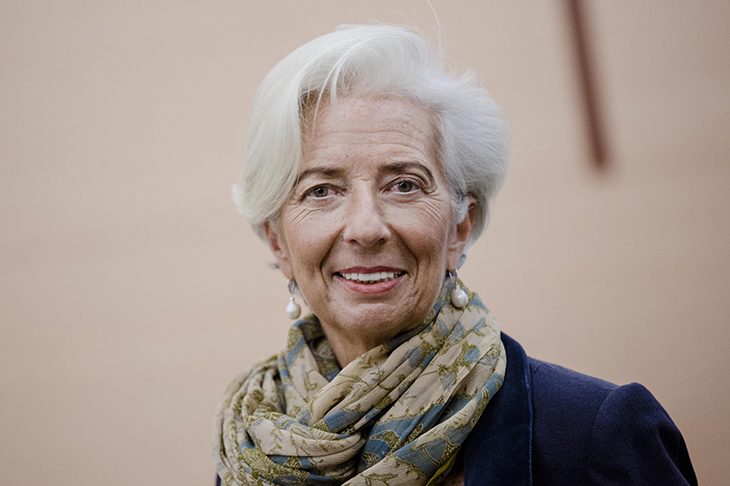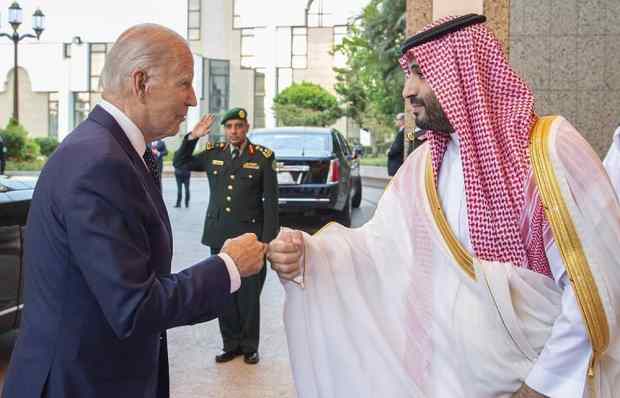If you’re a bloke in a suit who’d like to apply for the governorship of the Bank of England (deadline 5 June), I suggest you browse the website of Sapphire Partners, the headhunters appointed by Philip Hammond to conduct the search. Run by ex-JPMorgan banker Kate Grussing with an all-female team plus Cherie Booth and Lady (Barbara) Judge on its board, the firm declares: ‘We are trailblazers [as] advocated for women in business.’ You’ll probably already have read the job spec on the Cabinet Office website, which refers to candidates as ‘she/he’. None of which means a man can’t win; the Chancellor himself, in a recent select committee appearance, made more of the need for a governor with credibility on the international central banking circuit than of the gender issue. But you can be pretty sure he has asked Sapphire to come up with a shortlist that’s at least 50-50.
And — let me add, before I’m accused of a thought crime — that’s a good thing: not only because the Bank has fallen behind the zeitgeist in largely failing to appoint or retain women in its top ranks throughout Mark Carney’s governorship but also, as this column has argued ever since the 2008 crisis, because women often make better senior bankers than men, being less prone to machismo. So I’d say Ladbrokes has mispriced the female favourite, Santander UK chairman Baroness Vadera (first tipped here a year ago) at 8-1, compared with 2-1 for the leading man, Andrew Bailey of the Financial Conduct Authority, and 5-1 for former governor Reserve Bank of India governor Raghuram Rajan.
But there will be plenty more runners declared or dreamed up between now and Hammond’s decision in October. Among the outsiders, I’m tempted by 33-1 on Christine Lagarde of the IMF; and on the assumption, without being indiscreet, that ageism is these days as unacceptable as sexism, I’m up for a flutter on a respected veteran regulator who’s about to replace a bloke in a suit on the Bank’s Financial Policy Committee: Dame Colette Bowe.
Good on yer, Ross
There’s also a non-bloke in the frame to succeed Ross McEwan as chief executive of RBS. She is Alison Rose, the bank’s head of commercial and private banking and the daughter of an army officer, and she has what I regard as the wholly admirable qualification of having spent her entire career within the RBS group, having started as a graduate trainee at NatWest. She’s also, in my observation, a sensible, unspun executive who has done much to champion her bank’s support for entrepreneurs: so I hope she gets the top job.
As for the New Zealander McEwan, who told last week’s RBS shareholder meeting that he plans to leave within 12 months, he can take credit for wrestling a bailed-out, discredited and demoralised organisation back to making profits, paying dividends and talking about the future, even if he could not return it to private sector ownership or remove the stain of its past mistreatment of small-business customers. When I last saw him at an RBS bash, I expected to find him tight-lipped after five years of flak: but he was fun, frank and — in a very Kiwi way — happy to stand by the bar twisting the caps off beer bottles for his guests. When he finally leaves these shores, he’ll deserve a chorus of ‘Good on yer, mate.’
Poverty breeds conflict
‘On the principle that prosperity fertilises peace,’ I wrote when the Iran nuclear deal was signed in Vienna in July 2015, ‘the re-entry of a militarily defused Iran into the legitimate international oil market, and the unfreezing of its financial assets, must be positive.’ My opinion was based on past studies of the efficacy of sanctions and economic incentives in conflict resolution, on which I’ve occasionally lectured as far afield as the Nato Defence College in Rome — and was encouraged, as recently as February this year, by quarterly reports from the International Atomic Energy Authority that Iran was remaining in compliance with limits set by the treaty on its holdings of enriched uranium.
Whether Iran also remains ‘the world’s leading state sponsor of terrorism’ and continues to use ‘a network of proxy groups to conduct terrorist acts on Iran’s behalf’ — as a US State Department ‘fact sheet’ put it in January — is of course the other side of this argument. But it’s hard to see anything positive in the news that sanctions reimposed by Donald Trump following his repudiation last year of the so-called Joint Comprehensive Plan of Action — to which the UK, China, France, Russia, Germany and the EU were signatories alongside Barack Obama’s secretary of state John Kerry — have succeeded in all but crippling the Iranian economy.
According to an IMF report this week, inflation there has reached 37 per cent amid a deepening recession driven by a collapse of oil exports, lately exacerbated by a US refusal to extend waivers that allowed continuing trade with partners including India, China and Turkey. All of which represents a kind of victory for Trump’s ultra-hawk national security adviser John Bolton, while some watchers see it strengthening the hand of Vladimir Putin in the Middle East’s Great Game as it destabilises the regime of pragmatist President Rouhani and gives succour to Iranian hard-liners who opposed the JCPOA in the first place. On the principle that poverty fertilises conflict, Trump is making Iran more dangerous than ever.
No joke
‘Knock, knock!’ ‘Who’s there? ‘Huawei.’ ‘Huawei who?’ ‘Who-are-we kidding, Mrs May, we really don’t need to knock at Downing Street’s front door with a bouquet of roses when we’ve already got a back door to your switchboard. But we wanted to thank you for overruling your own cabinet ministers in that National Security Council meeting which we so enjoyed listening to, and giving us the green light to build part of the UK’s 5G network.’ Boom boom.
Got something to add? Join the discussion and comment below.
Get 10 issues for just $10
Subscribe to The Spectator Australia today for the next 10 magazine issues, plus full online access, for just $10.
You might disagree with half of it, but you’ll enjoy reading all of it. Try your first month for free, then just $2 a week for the remainder of your first year.















Comments
Don't miss out
Join the conversation with other Spectator Australia readers. Subscribe to leave a comment.
SUBSCRIBEAlready a subscriber? Log in